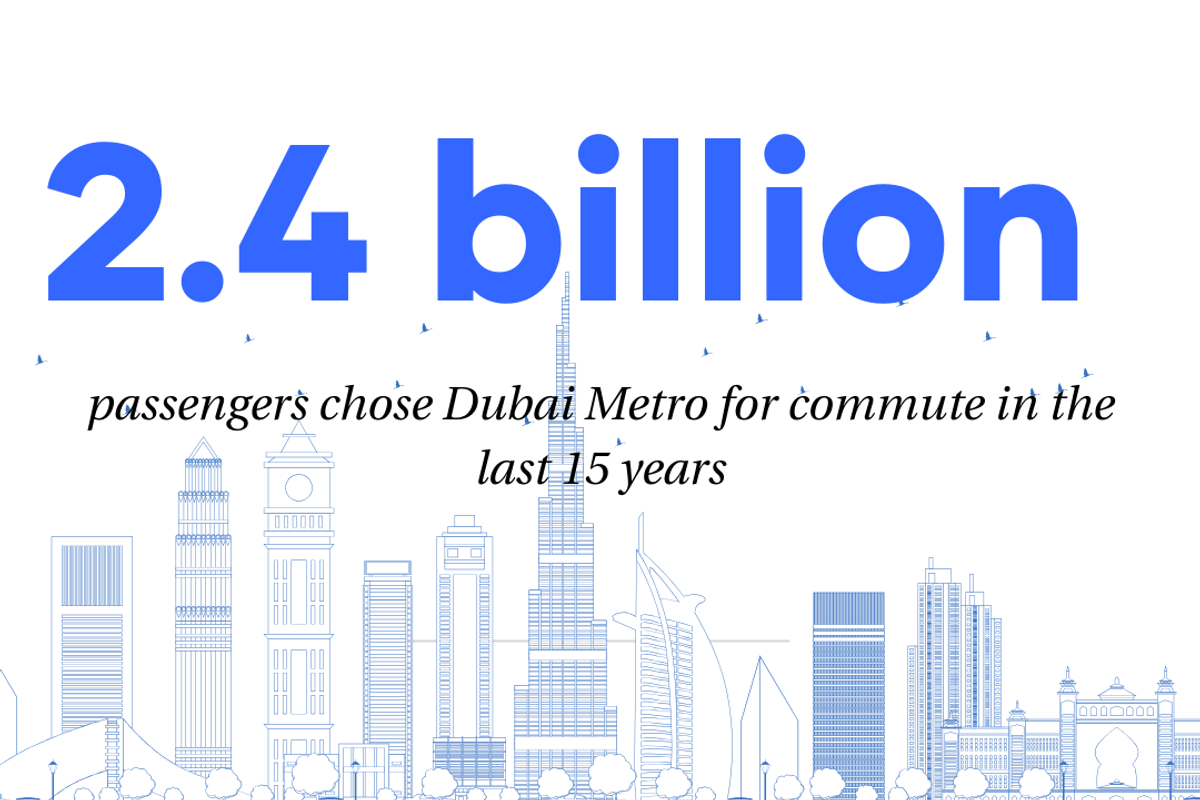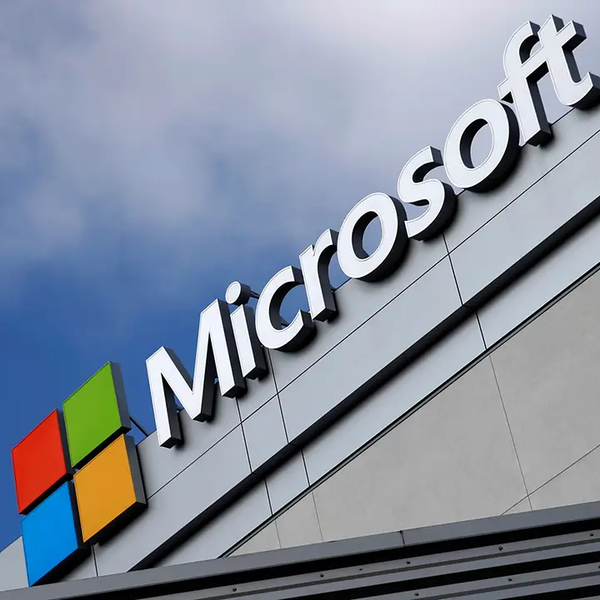Dubai Metro turns 15: a look back at its legacy
As the world's longest driverless metro system, it serves as a flagship project of Dubai's Roads and Transport Authority, forming the backbone of the city's public transportation network.

Sarthak Kapoor
Producer
Sarthak Kapoor is a film enthusiast, seasoned adman, filmmaker, and podcaster with over 6 years of experience in the industry. With a passion for Bollywood, he’s produced numerous talk shows and lives and breathes cinema in all its forms. When he's not behind the camera, he’s sharing his thoughts and insights here.

Dubai Metro caters to nearly 730,000 passengers on a daily basis.
Nukta
Today, September 9, Dubai Metro celebrates 15 years of revolutionizing urban mobility, marking a significant milestone in the city’s development. Since its opening in 2009, the metro has become an integral part of Dubai's transport network, providing residents and visitors with a reliable, efficient, and eco-friendly way to navigate the city. Its impact on the city's infrastructure and public welfare has been substantial, driving a cultural shift toward public transportation and advancing sustainability.
One of the metro's key contributions is its role in enhancing public transport accessibility for Dubai's growing population. Spanning 90 kilometers and 53 stations, the metro connects key business hubs, residential neighborhoods, and tourist attractions. Major initiatives like Route 2020, which links densely populated areas to the Expo 2020 site, have provided faster, more direct access to crucial city locations. This has eased road congestion and reduced commuting times for thousands of residents.
His Excellency Mattar Al Tayer, Director General, Chairman of the Board of Executive Directors of the Roads and Transport Authority (RTA), stated:
"The Dubai Metro is one of the visionary initiatives of His Highness Sheikh Mohammed bin Rashid Al Maktoum, Vice President and Prime Minister of the UAE and Ruler of Dubai. It aims to provide a world-class public transport infrastructure, positioning Dubai as a global hub for finance and business."
The Blue Line, approved in 2023, will add another 30 kilometers to the metro network, connecting 14 new stations. Designed to serve areas with a projected population of around one million, the Blue Line will further integrate Dubai’s public transport system, reducing reliance on private vehicles and supporting the city’s goal of becoming the world's best city to live in by 2040. It will also improve connectivity with the Red and Green Lines of the Dubai Metro and provide direct links between Dubai International Airport and nine key locations along the route, with travel times expected to range from 10 to 25 minutes.
15 عاماً مرت منذ افتتاح مترو دبي .. نقل خلالها 2.4 مليار مسافر في أكثر من 4.3 ملايين رحلة.. ونسبة الالتزام بمواعيد رحلاته بلغت 99.7% … ونريدها 100% يإذن الله ..
الالتزام بالمواعيد ثقافة .. وفضيلة .. وقيمة حضارية نبيلة ..
مشروع مترو دبي .. يمثل ثقافة دبي .. القائمة على الجودة…
— HH Sheikh Mohammed (@HHShkMohd) September 8, 2024
On peak days such as New Year's Eve and major holidays, the Dubai Metro has accommodated up to 900,000 passengers in a single day. It has also boosted local employment, with its operating company providing jobs for 228 Emirati nationals.
The metro has brought substantial social and economic benefits to Dubai’s population. By encouraging public transport use, it has helped residents and visitors cut daily travel costs, saving on fuel and vehicle maintenance. Its accessibility has also made commuting easier, improving both mental and physical comfort with a smooth, climate-controlled travel experience.
By encouraging a shift from private cars to public transport, the metro has played a role in reducing carbon emissions, traffic congestion, and the overall environmental impact of commuting. It is an essential part of Dubai’s broader sustainability initiatives, supporting the emirate’s efforts to lower its carbon footprint while enhancing mobility.
The Dubai Metro has set benchmarks for safety and operational efficiency, reinforcing the city's position as a global leader in infrastructure development. With its driverless technology and advanced control systems, it stands among the world’s most sophisticated metro networks. This spirit of innovation continues with future projects like the Blue Line, which will introduce Dubai’s first metro bridge over the Creek and iconic stations that blend cutting-edge design with functionality.
As Dubai Metro continues to expand and innovate, it remains a crucial component of the city’s vision for a modern, sustainable, and inclusive future, delivering tangible benefits to the public and setting an example for other cities worldwide.













Comments
See what people are discussing